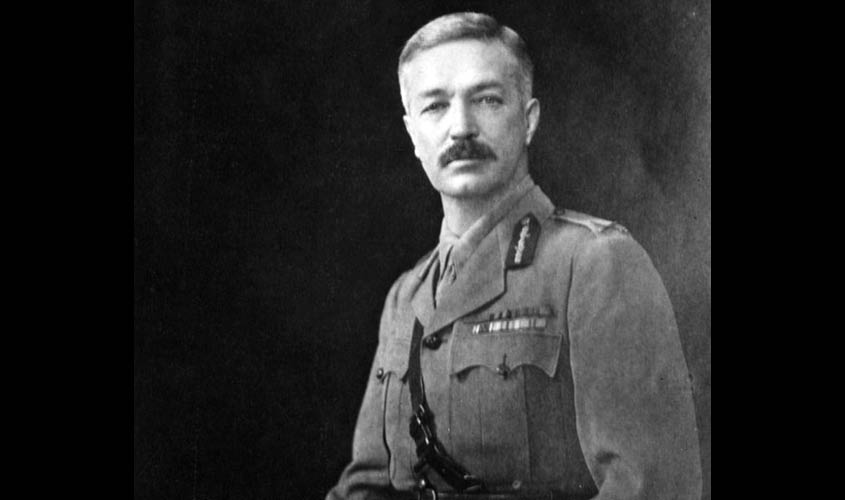General Dyer was malignance personified. His action ensured the rapid end of the British Empire.
On 13 April is the hundredth anniversary of the brutal massacre at Jallianwala Bagh in Amritsar. The man responsible was a British military officer, Brigadier-General Reginald Dyer. He was malignance personified. It is not possible to make any allowance for his frightfulness. He was thick skinned, meanly obdurate, self-righteous, with an insane sense of duty. His action at Jallianwala Bagh ensured the rapid end of the British Empire. His misguided admirers (more about them later) called him the saviour of the Empire.
Following the arrest of Congress leaders Dr Saifuddin Kitchlu and the Cambridge educated Dr Satyapal, in early April, tensions ran high in Amritsar. Agitators stoked the fires of discontent. This unrest was spontaneous, no conspiracy was planned, as claimed by many British officials. Tempers were running high on account of the Rowlatt Act, Anarchical and Revolutionary Crimes Act, which Mahatma Gandhi and the Congress opposed.
The response of the Punjab government was to issue a proclamation, which stated that “All meetings and gatherings are hereby prohibited and will be dispersed at once by Military Law.” Two: “No person residing in the Amritsar City is permitted to leave his house after 8 P.M. Any person found in the streets after 8 P.M will be shot.”
Not even one tenth of the people of Amritsar had heard of the proclamation. It was written in Urdu and was distributed by hand.
A meeting was called at Jallianwala Bagh on Baisakhi day, 13 April. Over 5,000 people came to the meeting, including women and children. Hardly any of them had heard of the proclamation—Dyer himself acknowledged that people might not have heard of the proclamation. The meeting was not held to challenge the government or Dyer. In fact Dyer had arrived in Amritsar with orders from the government. This lapse was covered up by the Lieutenant Governor of Punjab, the lamentable, arch-Empirewalla, Michael O’Dwyer. He loathed Indians. He was, till the very end, a staunch supporter of Dyer and the massacre he masterminded. O’Dwyer was shot dead in London in 1940 by Udham Singh.
The crowd at Jallianwala Bagh had no arms, not even lathis. Yet, Dyer decided that this was a part of an intended revolt, which had to be put down by force. When Dyer reached the Bagh, he asked his troops to fire at the crowd. In ten minutes 379 (official estimate) men, women and children were killed. Nearly 2,000 were wounded. There was only one exit. People tried to climb over the wall. They were shot in the back. Having performed his duty Dyer withdrew his force. No offer of medical aid was made.
Then followed the crawling outrage. Dyer ordered that men be asked to crawl in the narrow Kucha Kaurianwala Street leading to the Bagh. If anyone raised his head he was beaten with lathis. Next came the whipping order. A whipping post was erected. Teenagers were given thirty whiplashes. There was no escape—they were fastened to the flogging post. Their families were asked to watch the flogging. One boy shrieked with pain: “Oh mother, I am dead. Oh sahib, leave me.”
Very slowly the news of the massacre began to leak out. The Viceroy Lord Chelmsford, after reading the Hunter Committee report, wrote to the Secretary of State Edward Montagu: “I cannot contemplate the retention of a man of his mentality and with his record.”
Dyer was summoned to Delhi and asked to resign his command and also told that he would receive no further post in India. A few days later Brigadier General Dyer sailed for England.
He was welcomed as a hero and not shunned as a villain. Dyer’s case was discussed in the House of Commons in July 1920. The Secretary of State, Montagu said, “Are you going to keep your hold upon India by terrorism, racial humiliation, and subordination, and frightfulness, or are you going to rest it upon the goodwill, and the growing goodwill, of the people of your Indian Empire?” Montagu was heckled and interrupted by racial diehards. One of them, Austin Chamberlain observed, that he had not seen the House, “so fiercely angry… A Jew, (Montagu) rounding on an Englishman and throwing him to the wolves—that was the feeling”. Most uncharacteristically, Winston Churchill, then Minister of War, called Dyer’s action un-English and that he had betrayed British values. The House censured Dyer—the vote was 230 to 129.
However, in the House of Lords, Dyer found many conservative supporters, the most prominent being Lord Salisbury. The House of Lords voted 129 to 86 in favour of Dyer.
The Morning Post launched an appeal to patriots for monetary subscriptions for helping Dyer, “the man who saved India”. The response was massive: 26,000 pounds were donated (Kipling gave ten pounds) so that the butcher of Jallianwala Bagh could spend the rest of his life in comfort.

